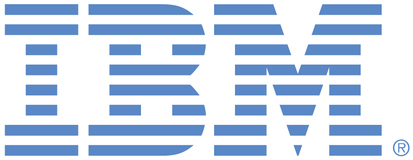
This is an IBM Automation portal for Cloud Platform products. To view all of your ideas submitted to IBM, create and manage groups of Ideas, or create an idea explicitly set to be either visible by all (public) or visible only to you and IBM (private), use the IBM Unified Ideas Portal (https://ideas.ibm.com).
Shape the future of IBM!
We invite you to shape the future of IBM, including product roadmaps, by submitting ideas that matter to you the most. Here's how it works:
Search existing ideas
Start by searching and reviewing ideas and requests to enhance a product or service. Take a look at ideas others have posted, and add a comment, vote, or subscribe to updates on them if they matter to you. If you can't find what you are looking for,
Post your ideas
Post an idea.
Get feedback from the IBM team and other customers to refine your idea.
Follow the idea through the IBM Ideas process.
Specific links you will want to bookmark for future use
Welcome to the IBM Ideas Portal (https://www.ibm.com/ideas) - Use this site to find out additional information and details about the IBM Ideas process and statuses.
IBM Unified Ideas Portal (https://ideas.ibm.com) - Use this site to view all of your ideas, create new ideas for any IBM product, or search for ideas across all of IBM.
ideasibm@us.ibm.com - Use this email to suggest enhancements to the Ideas process or request help from IBM for submitting your Ideas.

Adding constraints on Session licensing, even as an option is very complex and could lead to unwanted side effets.
UCD provides the means (high watermark usage, log information and so on) for managing use of Session licensing.
As part of the review process, we strive to be transparent about our intentions with each enhancement suggestion. The offering team has carefully reviewed this idea and has decided that it does not fit into our current plans, or the idea has aged or has been implemented, so the idea will be closed. The idea will be kept in IBM's ideas repository and may still be voted on. It might be reassessed or reopened for additional feedback in the future. We value your feedback and thank you for allowing us the privilege of partnering with you in developing our products.
Although the theme of this request is consistent with our business strategy, it is not committed to the release that is currently under development.
Thank You for clarification.
The IDEA is to let the "safe mechanism" be optional, by providing this:
An administrative option should be created in the UCD, leaving it up to the tool administrator to select how to use the simultaneos session licenses:
1) When exceeding the simultaneos session license limit, allow the deploys to continue (what you named as "safe mechanism", the way UCD is working today);
2) Limit the use of the tool's functionalities (Agents) when the licensing limit is reached (New option requested in this idea)
Let's assume the following: A deployment is started and 3 agents are doing deployments in the first minutes and there are enough session licenses available. Now in the next minutes additional processes are started on other 2 agents and now the used sessions would swap over the "licensed" number. In the actual implementation it would write a log entry and goes on.
With the switch, the only feasible action would be to wait till licenses are available.
Do i have understood you correct?
I do understand the designed tool's behavior and, beacause of this, we opened this Idea to change it. The point is that "Session licensing" for agents doesn't give UCD Admins the option to control the desired behavior for company. If we don not want to have the "safe mechanism" (of automatic use of more sessions) enabled, we have no alternatives. It is interesting that this safe mechanism can be available (If we set this option on), but it should not be a imposition, since we can choose to find other internal strategies of better using agents and, consequently its license consumption.
IBM UrbanCode provides a number of different licensing types. The main ones are the "classic" Server/Agent and the other Session type.
Server/Agent requires that all the agents and servers which will be used need to have a license. Without a license they will either not work or will give you a restricted functionality.
Session licensing means that only agents are licensed (floating, simultaneous sessions). It also provides a safe mechanism, when more sessions are needed than available the deployment will be execute BUT a warning will be put into the log to check if this happens too often -> need to add additional licenses.
This is a design as requested by customers, so that they can still deliver deployments without having to wait till licenses are free to use.
More detail here: https://www.ibm.com/docs/en/urbancode-deploy/7.2.0?topic=management-license-scenarios
Technicallly, authorized licenses (server/agent) are proxied by UCD to agents during startup time. Otherwise, floating licenses (simultaneous sessions) are acquired by each agent during deployment time… it should be simple as does not allow deployment by unlicensed agent anytime (enabled by flag at system settings to allow customer keep/change behavior from soft to hard block when using just simultaneous sesson or mixed licensing)…